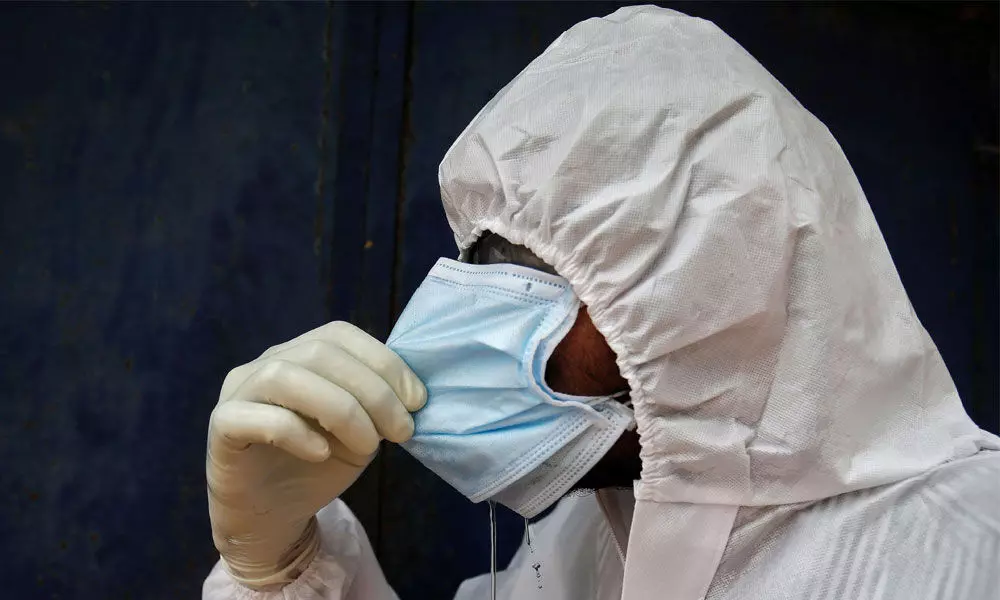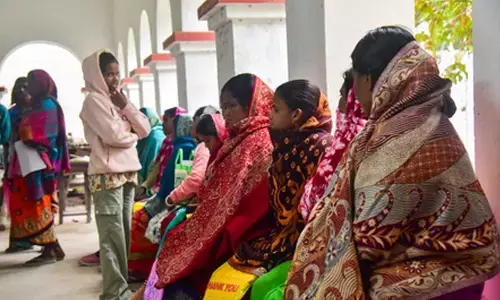Coronavirus: The pandemic of inequality

Coronavirus: The pandemic of inequality
The late microbiologist and environmentalist, René Dubois, famously articulated that every civilisation created its own diseases and epidemics
The late microbiologist and environmentalist, René Dubois, famously articulated that every civilisation created its own diseases and epidemics. Into the eighth month of the novel coronavirus disease (COVID-19) pandemic, one is convinced about what ours would be: Inequality.
And it took a pandemic to bring this out. It is now being popularly mentioned as the 'pandemic of inequality'. Nobody is sure when this defining point of the pandemic would be declared over.
In the last fortnight, global conversations on the pandemic revolved around its impacts on hunger, poverty and inequality, making the world slide again into a time where it had started talking about various global goals like the Millennium Development Goals and Sustainable Development Goals (SDG).
Recent estimates and analysis show that the pandemic is impacting the already poor more, whether they are in developed or developing countries.
António Guterres, secretary-general of the United Nations, while delivering the 2020 Nelson Mandela Annual Lecture, said: "The Covid-19 pandemic has played an important role in highlighting growing inequalities. It exposed the myth that everyone is in the same boat. While we are all floating on the same sea, it's clear that some are in superyachts, while others are clinging to the drifting debris." He highlighted that the world had ignored inequality for too long, further putting the poor at greater risk during the pandemic.
It is not just that the world is witnessing the first recession to be triggered by a pandemic, but also the 'sharpest decline in per capita income' since 1870. The impacts of the global economic collapse have indeed trickled faster to the poor.
Oxfam, a non-profit operating across the world, has estimated that there are 121 million more people on the brink of starvation today due to mass unemployment, disruption to food production and supplies. "As many as 12,000 people could die every day from Covid-linked hunger," declared Oxfam.
"The frontline in the battle against the coronavirus is shifting from the rich world to the poor world," said David Beasley, the executive director of the World Food Programme (WFP). Beasley declared in a press conference that the global body was running its biggest-ever humanitarian response to avail food to millions.
In 2019, the WFP assisted 97 million people, which was a record at that point of time. Currently, it assists 138 million people. A severe hunger crisis is precipitating due to the pandemic, among those who were already surviving on subsistence level or with external support.
According to the WFP, the number of hungry in the countries where it operates would increase to 270 million by the end of this year. This will be an increase of 82 per cent from the level immediately before the pandemic erupted.
The geography of hunger, however, remains the same. The Covid-19 pandemic is impacting those areas that were already in crisis harder. Spikes in hunger are also evident in west and central Africa, that have seen a 135 per cent jump in the number of food insecure people, as well as in southern Africa, where there has been a 90 per cent rise.
This geography faced the wrath of climate change, conflicts and also lack of development aids. In the last four years (before Covid-19), the population of severely food insecure rose by 70 per cent. In the past, these people were not counted or escaped from the 'severe levels of food insecurity'.
Now, they are again the victims in disproportionate degrees. "Until the day we have a medical vaccine, food is the best vaccine against chaos. Without it, we could see increased social unrest and protests, a rise in migration, deepening conflict and widespread under-nutrition among populations that were previously immune from hunger," Beasley said.
It is first time since 1990, when the concept of human development measurement was adopted across the world, that the human development measure would come down in 2020.
Inequality makes any recovery in the situation not beneficial for the already poor and disadvantaged. For instance, economic recovery in 2021, according to forecasts, would not have the desired impacts on the poor.
Over time, economic growth has led to reduction in income inequality among countries. But within countries, inequality in income has, in fact, increased — by four per cent in Gini Coefficient (a statistical measure to gauge wealth distribution) since 1990.
This global increase in inequality was driven by widening inequality in China, India, Indonesia and the United States. A Food and Agriculture Organization assessment shows that COVID-19 may cause an increase in each country's Gini by two per cent.
In this case, the number of poor will additionally increase by 35-65 per cent. In India alone, some 400 million people would slip into poverty due to the impacts of the pandemic. And these are mostly workers in informal sectors. This again shows how disproportionate the pandemic's impacts have been.
This year's recently concluded high-level political forum also highlighted about how to handle this development challenge.
First, the world has slipped on its commitments for SDGs. Second, inequality will further widen, thus making it very difficult to garner global support to fund the development agenda. Most of the countries in this forum highlighted the challenge of inequality and the economic devastation caused by the Covid-19 pandemic.
(Courtesy: Down To Earth)
















